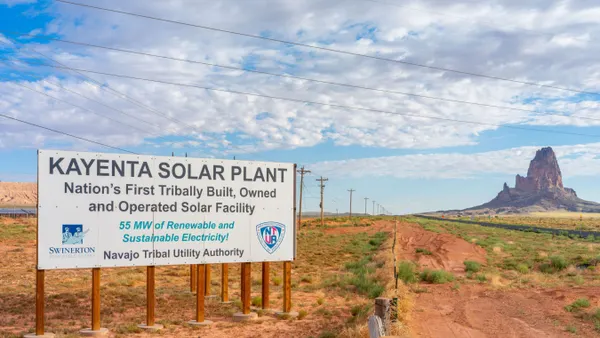Dive Brief:
- Duke Energy on Friday defended its proposed $76 million electric transportation pilot program after staff of the North Carolina Utilities Commission recommended July 5 that regulators reject the utility's proposal.
- Staff argued the three-year pilot amounted to pre-approval of EV infrastructure investments to be funded by customers. Duke officials maintained that utility investment will be necessary to meet North Carolina's climate and electric vehicle adoption goals, but more data is necessary to make long-term investments.
- Duke's proposal appears to have broad support in the related docket, with Sierra Club noting that in order for the state to reduce greenhouse gas emissions 40% by 2025, relative to 2005 levels, "North Carolina must move rapidly to advance transportation electrification."
Dive Insight:
The Public Staff made clear they have nothing against electrified transportation, but think Duke's pilot proposal isn't so much about research, but a way to avoid the full rate review process for capital investments.
"The Public Staff is not opposed to transportation electrification," they wrote in comments. But while Duke frames their request as a "pilot" with associated pilot tariffs, the company is "essentially requesting pre-approval of EV infrastructure investments that would be funded by customers."
Staff said that there is data available from previous Duke Energy EV pilots, and that the utility did not show "that spending $76 million over a three-year period is necessary to learn more about serving current and future EV load."
"The companies have provided no evidence demonstrating that North Carolina customers are sufficiently unique to justify another pilot program or that the results of previous or ongoing pilot projects are insufficient to meet the companies' needs," they wrote.
But Duke contends more such programs are needed to achieve the state's EV objectives, and that the pilot program structure is appropriate.
"The organic growth of EV charging in the state will not be able to keep up with" the state's goal of 80,000 electric vehicles by 2025, Duke Energy spokesman Randy Wheeless told Utility Dive.
Wheeless said Duke executed another EV pilot in North Carolina five years ago, "but the market has changed since then. I think we're still learning."
"The utility investment makes a lot of sense," Wheeless said. "Whether you call it a pilot program ... in order to spur that growth, you're going to need pilots and programs and investment from utilities to make that happen."
The North Carolina Justice Center and the Southern Alliance for Clean Energy support Duke's plan, though they called for some revisions, including measures to strengthen oversight.
Greenlots and the cities of Durham and Asheville also support Duke's plan.
Duke has said its proposed buildout for nearly 2,500 EV charging stations is the largest such filing in the Southeast.
Correction: A previous version of this article incorrectly stated that commission staff proposed to reject North Carolina's EV pilot proposal. Public staff, which is separate from commission staff, made the proposal.














